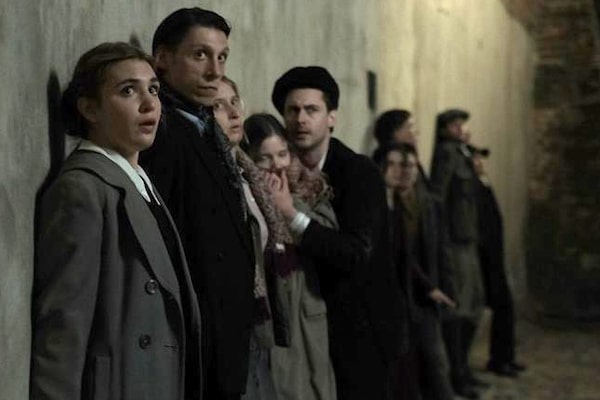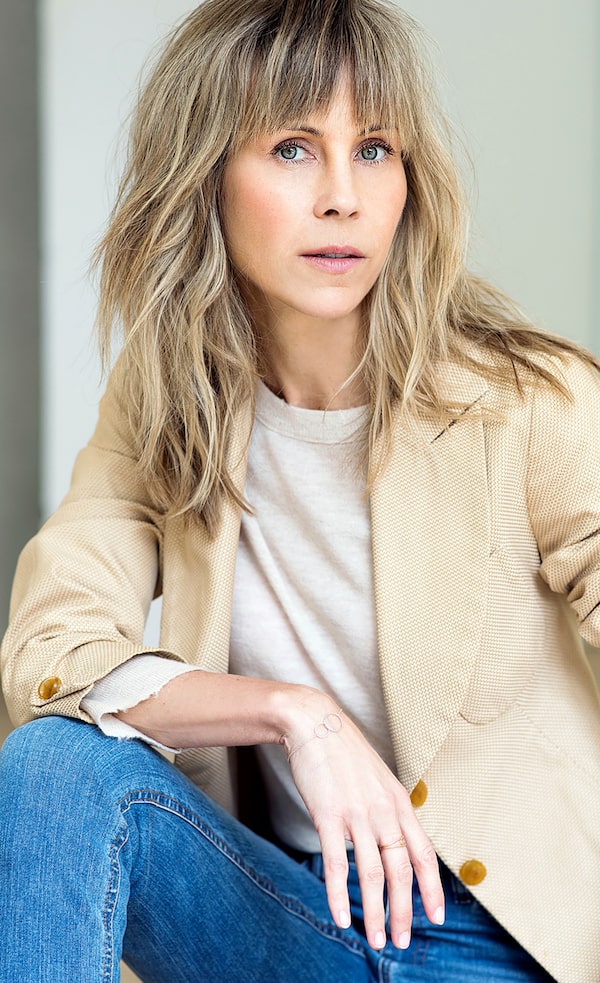
Film still of Irena's Vow.Handout
If you saw the world premiere of Louise Archambault’s Holocaust drama Irena’s Vow at last year’s Toronto International Film Festival, you may wish to see it again. You were short-changed emotionally.
“The screening was very moving, but it was cut a bit short,” Archambault says. “We didn’t get the correct ending because of technical problems.”
Irena’s Vow, which opens Friday, is based on a true story. It stars Sophie Nélisse as a former nurse who risks her life to save a dozen Jewish men and women in Nazi-occupied Warsaw. The film’s post-script, which packs an emotional wallop, wasn’t seen at the TIFF opening-night premiere. (The full Irena’s Vow later won the Audience Award at the Vancouver International Film Festival.)
Canadian film and television director Archambault, whose 2013 drama Gabrielle won the Canadian Screen Award for best picture, spoke to The Globe and Mail about her film, which was shot in Poland in 2022 as Ukrainian refugees who were fleeing the Russian invasion crossed into the country.
Were there any logistical issues or obstacles incurred while filming in Poland during the early days of the Russian invasion of Ukraine?
Obstacles, maybe not. We started to shoot in 2022 at the end of March into May. There were insurance issues. What was interesting was the Polish crew. They felt they needed to tell this story more than ever. All of them have stories about the war, with their families. On the second day, we shot a hanging scene in Lublin. There were a lot of refugees. We saw them everyday – mothers and children with their little suitcases. When we shot the hanging scene in the main square, we put signs all over in Polish, Ukrainian and English notifying people that it was a film shoot and that it wasn’t real. It gave me goose bumps.
You were using a handheld camera, which could have been confused as a news camera.
We didn’t have a lot of time. We used a handheld to be more efficient. Sophie Nélisse, who plays the Polish nurse Irena Gut, was surprised. She burst into tears for real. It was quite moving to shoot her, really crying. When we yelled “cut,” Dan Gordon, the screenwriter, came over and hugged Sophie. He told her that she had brought Irena back to life.
He wrote a Broadway play based on conversations he had with Irena before she died in 2003, and he also wrote the screenplay. What kind of discussions did you have with him about what the film was going to be?
I actually received the script not knowing it was a play. But whether it was on Broadway or not, what was important is all the stories she told him throughout the years. It was his decision to put it on screen – it was his vision, his homage.

Louise Archambault.Julie Perreault/Handout
What’s your role?
I’m the transmitter. It was going to be that way, or I wasn’t going to do it. I tried to focus on characters, on Irena. I’m a woman – who is she? How can we add the characters’ points of view? They’re not here any more to tell their story.
In wartime films such as Irena’s Vow and the Anthony Hopkins-starring One Life, there are feel-good moments and horrific moments. In telling a story like this, how do you balance the emotional tones?
You have to see yourself as Irena. There is horror and there is tension. You are afraid along with the characters. But throughout that there is love and light and hope. Shooting this film, with war right next door, we need hope. We need these characters, and there are people doing these things today – small gestures, lending a hand. People want to help, and I embraced that.
And what about the atrocities?
They are seen through Irena’s eyes. It could have been more graphic, but this is not that film. It’s relationships. There is a Me Too theme. There are a lot of themes, but mostly you are with this woman who was studying to become a nurse and became a forced labourer, first in a munitions factory and then as a housekeeper. For so many people, that is what happened.
Is it fair to say these kinds of films are about the choices people make?
Dan Gordon chose the moment of Irena’s choice. What did she do? She wanted to help people she knew were about to be killed. There is an urgency – something has to be done. The world is inside-out. In that urgency, what can we do and continue to live?
 Brad Wheeler
Brad Wheeler